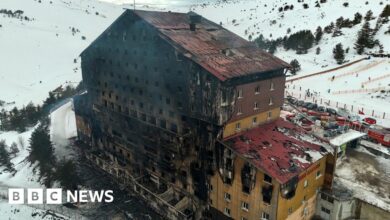Senior Hezbollah commander killed in Israeli airstrike
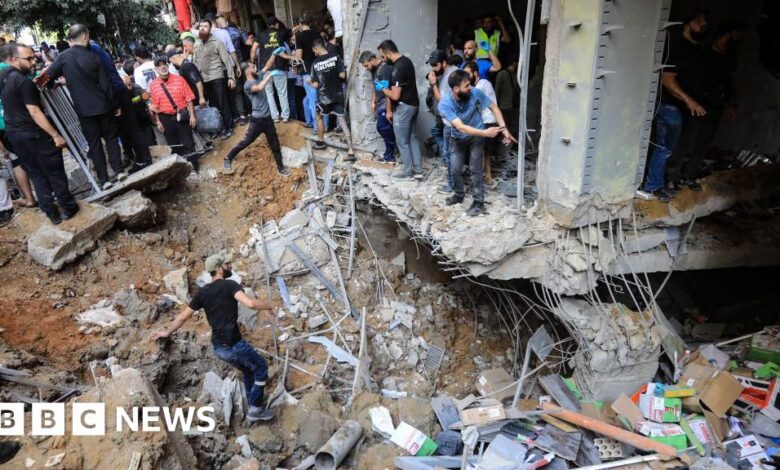
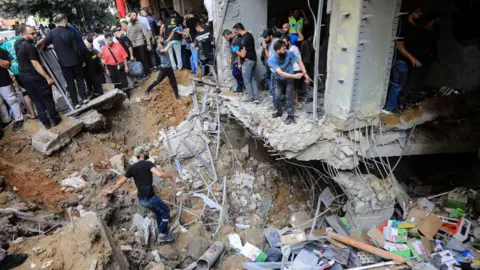 Getty Images
Getty ImagesA senior Hezbollah military commander was killed in an Israeli air strike on the Lebanese capital Beirut on Friday, in a serious escalation that has raised fears of all-out war.
Hezbollah confirmed the death of Ibrahim Aqil after Israel said he was among several senior Hezbollah figures killed in an air strike.
Earlier, Lebanese officials said at least 14 people were killed and dozens wounded in an airstrike on the densely populated Dahieh area, a stronghold of the Iran-backed group on the southern outskirts of the city.
There were chaotic scenes as emergency crews rushed to the scene of the attack, rescuing the injured and searching for those believed to be trapped under the rubble. At least one residential building collapsed and others were badly damaged.
Hezbollah members blocked the street, some appearing in disbelief as the attack was another humiliating blow in a week that saw the group’s pagers and walkie-talkies explode.
Dozens of people were killed and thousands injured in the attacks, which are believed to have been orchestrated by Israel.
Friday’s strike was the first in Beirut since July, when Hezbollah military commander Fuad Shukr was killed.
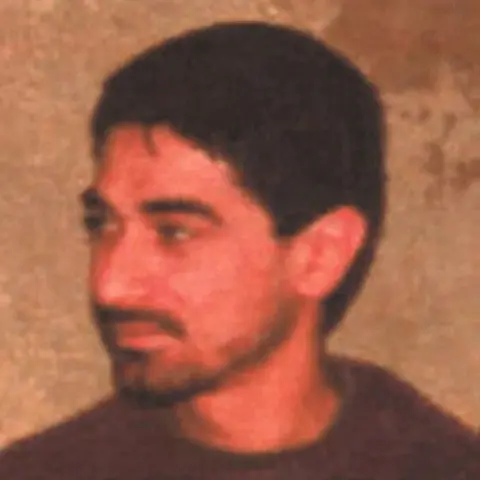 United States Government
United States GovernmentIn a statement, Israel Defense Forces (IDF) spokesman Daniel Hagari said Aqil, a senior commander in Hezbollah’s elite Radwan force, was killed along with senior operatives in the group’s operations staff and other Radwan commanders.
Hagari said the individuals killed were “planning Hezbollah’s ‘Conquest of Galilee’ attack plan, in which Hezbollah intends to infiltrate Israeli communities and kill innocent civilians.”
The plan was first reported by the Israeli military in 2018, when IDF says it is blocking tunnels Hezbollah’s plan to infiltrate Israeli territory and kidnap and kill civilians.
In April, Washington said it was searching for Aqil, also known as Tahsin, and offered a reward for anyone with “information leading to his identification, location, capture and/or conviction.”
He is wanted by the United States for his connections and seniority in Hezbollah, a group listed as a terrorist organization by Israel, Britain, the United States and other countries.
In the 1980s, Aqil was part of a group that directed the bombing of the US embassy in Beirut and a Marine barracks, killing hundreds of people.
Confirming Aqil’s death in a social media post, Hezbollah described him as one of the group’s “great jihadist leaders”.
The group was founded in the early 1980s by the region’s dominant Shia power, Iran, to fight Israel, which at the time was occupying southern Lebanon during the country’s civil war.
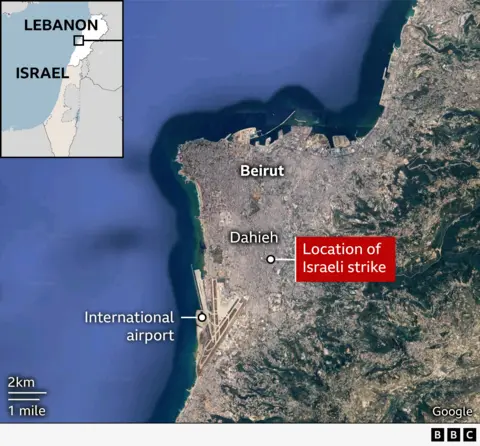
Earlier on Friday, Hezbollah said it had launched attacks on military sites in northern Israel. The IDF said 140 rockets were fired into the north of the country, while Israeli police issued warnings about damage to roads.
The incident comes after Israel launched large-scale air strikes on southern Lebanon, claiming its warplanes hit more than 100 Hezbollah rocket launchers and other “terror sites”, including a weapons storage facility.
Cross-border fighting between Israel and Hezbollah escalated on October 8, 2023 – a day after an unprecedented attack on Israel by Hamas gunmen from Gaza – when Hezbollah opened fire on Israeli positions in a show of solidarity with the Palestinians.
Since then, hundreds of people, mostly Hezbollah fighters, have been killed in cross-border fighting, while tens of thousands have also been displaced on both sides of the border.
Israel recently added the repatriation of displaced people from the north of the country to its list of war objectives, and Defense Minister Yoav Gallant said Thursday that his country was entering a “new phase of the war,” focusing more efforts on the north.
Following the explosions of pagers and walkie-talkies across Lebanon earlier this week, a sense of insecurity is growing in the Middle Eastern country.
It was an unprecedented security breach, showing how deeply Israel had penetrated the group’s communications systems.
Several explosions occurred at the same time, with Wednesday’s walkie-talkie explosion occurring near a large crowd gathered for the funerals of four victims of Tuesday’s pager explosion.
Hezbollah and the Lebanese government blamed Israel for the explosion.
Israeli officials have not commented on the allegations, but most analysts agree they were behind the attack.
In a televised speech on Thursday, Hezbollah leader Hassan Nasrallah said: “The enemy has crossed all rules, laws and red lines. It cares nothing, not morally, not humanitarianally, not legally.”
Nasrallah vowed severe punishment, but said his group was not interested in escalating the current conflict with Israel.
Lebanese Foreign Minister Abdallah Bou Habbib told the UN Security Council on Friday that Israel had “deliberately sabotaged” diplomatic efforts for a ceasefire in Gaza and “all efforts by the Lebanese government to de-escalate tensions and exercise restraint”.
Israel’s special envoy to the United Nations Danny Danon said that while his country did not want a wider conflict, it “would not allow Hezbollah to continue its provocative actions”.
The US and UK governments have urged their citizens not to travel to Lebanon. The White House said it has engaged in intense diplomacy to prevent an escalation of the conflict along the Israel-Lebanon border.
Repeating its previous call, the UK Foreign Office said it “continues to advise people to leave Lebanon now while commercial flights are still operating”.
The BBC understands that during a meeting in the Cabinet Room (COBR), officials discussed ongoing preparations, particularly regarding British nationals, in the event of any further escalation.




